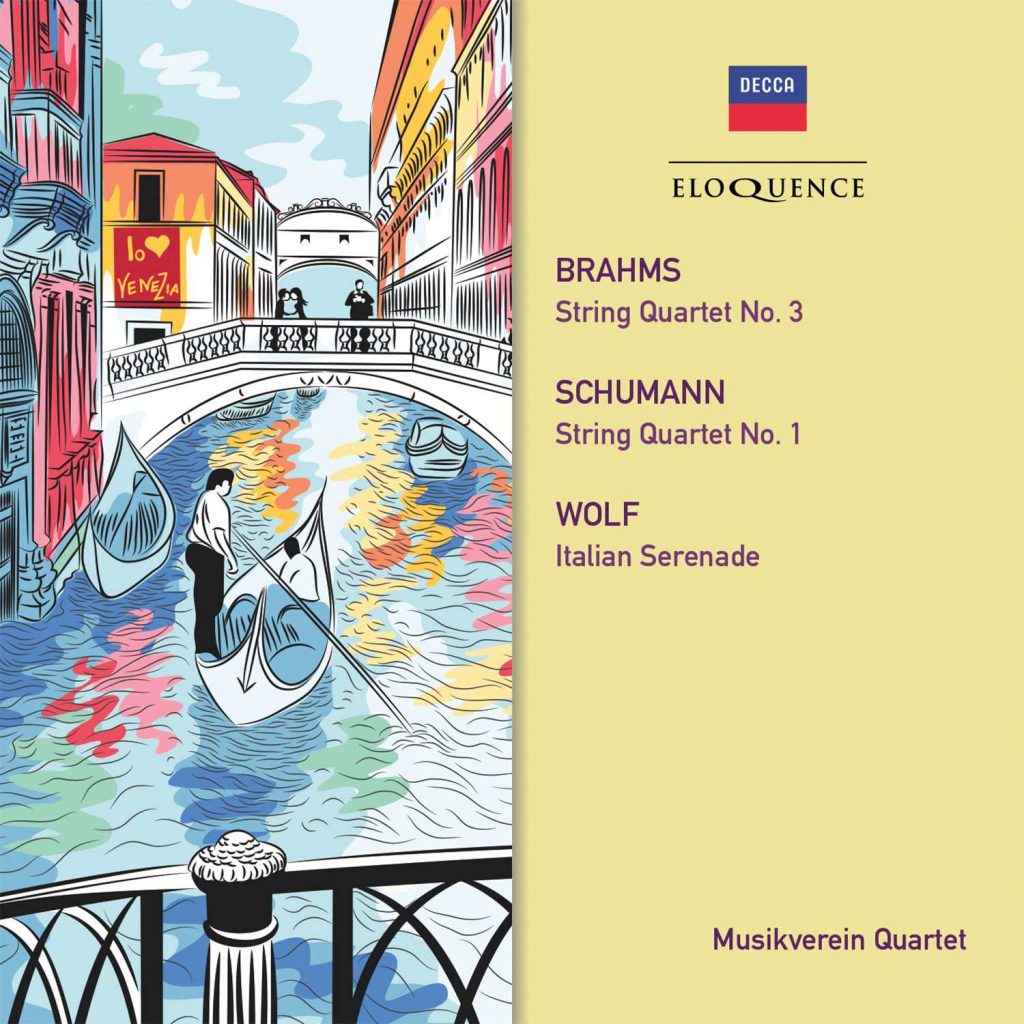After the wealth of string quartets produced by the composers of High Classicism – Haydn, Mozart, Beethoven and Schubert – the leading figures of Romanticism were somewhat daunted by the expectations of their public. Felix Mendelssohn achieved a respectable total of six quartets but the three notable composers represented in this program managed only nine between them. Johannes Brahms, in particular, was paralysed by the thought that if he wrote a symphony or a quartet, people would measure it against Beethoven’s mighty creations. He kept a bust of Beethoven in his study and destroyed numerous works which he felt would not stand comparison with those of his hero. Robert Schumann was a slightly different case when, in 1842, he confronted chamber music head-on: he and Clara studied Haydn’s, Mozart’s and Beethoven’s quartets, playing them together on the piano, and in June and July Robert produced an extraordinarily unified trio of quartets, connected by key but distinct from each other. Hugo Wolf wrote relatively little chamber music but with the ‘Italian Serenade’ of 1887, in a few days Wolf produced one of the most delectable miniatures in the chamber literature: this free rondo dances in the most light-footed manner. Receiving their first international release on CD, all three works are here performed by the Musikverein Quartet, founded in 1973 by members of the Vienna Philharmonic.
JOHANNES BRAHMS
String Quartet No. 3 in B flat major, Op. 67
ROBERT SCHUMANN
String Quartet No. 1 in A minor, Op. 41 No. 1
HUGO WOLF
Italian Serenade in G major WW XV/3
Musikverein Quartet
Recording Producer: Christopher Raeburn
Balance Engineers: James Lock, Colin Moorfoot (Brahms, Schumann); John Dunkerley, Jack Law (Wolf)
Recording Location: Sofiensaal, Vienna, Austria, 2–6 January & 21 October 1976 (Brahms, Schumann); 12–14 June 1977, March 1978 (Wolf)
‘a performance of remarkable clarity … very good recorded quality’ (Wolf) Gramophone
‘the Musikverein’s playing is proficient, polished, correct’ (Brahms, Schumann) Gramophone

